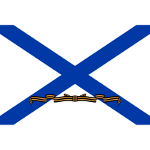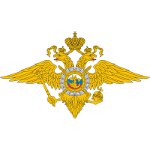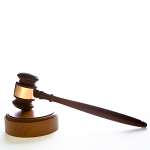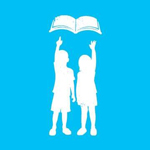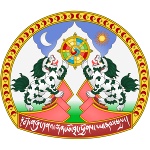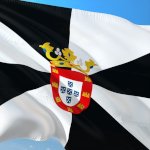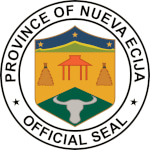Holidays Calendar for September 2, 2026
National Day of Vietnam is celebrated on September 2. This holiday commemorates the end of the Japanese occupation and the country's independence from France in 1945.
The Baptism of the Prophet is a public holiday celebrated in Mali seven days after Prophet Muhammad’s birthday. In this context, the word “baptism” obviously refers not to the rite of admission and adoption into Christianity, but to traditional Islamic birth rights that usually take place on the seventh day after a baby is born.
World Coconut Day is celebrated on September 2 by major coconut-producing countries, as well as by coconut lovers all over the world. It was established to raise awareness of the many benefits of coconuts and support the coconut industry in coconut-growing countries.
Day of Russian Guards Units is celebrated on September 2. President of Russia Vladimir Putin established the holiday in December 2000 to commemorate the 300th university of the formation of guards units in the Russian army.
September 2 is Patrol Police Day in Russia. This professional holiday was established to commemorate the issuance of the “Instruction for Patrol Militsioners” (i.e. militia officers) in 1923.
Notaries Day is a Ukrainian professional holiday celebrated on September 2 each year. It was established by President of Ukraine Victor Yuschenko in 2010 as an initiative of the Ministry of Justice of Ukraine.
Indigenous Literacy Day is an annual awareness campaign organized by the Indigenous Literacy Foundation (ILS), an Australian not-for-profit charity whose main purpose is to provide Aboriginal and Torres Strait Islander remote communities with educational tools and resources. It is observed on the first Wednesday of September.
Unlike most counties, the United States celebrate Victory over Japan Day (V-J Day) in September 2. On this day in 1945, the Japanese Instrument of Surrender was formally signed on board USS Missouri.
Tibetan Democracy Day is an annual holiday celebrated on September 2 by the Tibetan community in exile. On this day in 1960, the Parliament of the Central Tibetan Administration was officially established. Its jurisdiction extends to the Tibetan diaspora outside of China.
Ceuta is a Spanish autonomous city located on the north coast of Africa and surrounded by Morocco. In addition to public holidays celebrated throughout Spain, its residents observe a number of official regional holidays. One of such holidays is Ceuta Day (Día de Ceuta), also known as the Day of the Independent City of Ceuta.
Nueva Ecija Day (Araw ng Nueva Ecija) is a special non-working holiday in the Philippine province of Nueva Ecija. It is celebrated annually on September 2 to commemorate the Cry of Nueva Ecija during the Philippine Revolution.
Simeón Ola Day (Kaarawan ni Simeon Ola) is a special non-working holiday in the Philippine province of Albay. It commemorates the birthday of the last Filipino general to surrender to the Americans during the Philippine-American War.
September 2 is the perfect day to indulge yourself with a blueberry popsicle as the National Blueberry Popsicle Day is celebrated on this date.
Festivals for September 2, 2026
- Manifesta (European Nomadic Biennial) in Ruhr, Germany
- Venice Art Biennale in Venice, Italy
- Chartres en lumières (Chartres in Lights) in Chartres, France
- Shaw Festival in Niagara-on-the-Lake, Canada
This Day in History
- 2024 Died: James Darren, American television and film actor, television director, and singer. His notable film credits include Gidget, The Gene Krupa Story, The Guns of Navarone, and more.
- 2021 Died: Mikis Theodorakis, Greek composer and lyricist credited with over 1,000 works. He is best known for scoring for the films Zorba the Greek and Serpico.
- 2013 Died: Ronald Coase, British economist and author, remembered for his investigations on subject how market economies are shaped by contracts, laws and property rights.
- 2013 The new eastern span San Francisco-Oakland Bay Bridge opened to traffic, becoming the widest bridge in the world.
- 1998 Swissair Flight 111 en route from JFK International Airport in New York City, USA, to Cointrin International Airport in Geneva, Switzerland, crashed near Peggy's Cove, Nova Scotia, Canada. All 229 people on board died.
- 1998 The former mayor of a small town in Rwanda Jean-Paul Akayesu was found guilty by the United Nation's International Criminal Tribunal for nine counts of genocide and crimes against humanity and sentenced to life imprisonment for each of nine counts.
- 1992 Died: Barbara McClintock, American scientist and cytogeneticist, Nobel Prize in Physiology or Medicine laureate for the discovery of genetic transposition.
- 1991 Died: Alfonso García Robles, Mexican diplomat and politician, Nobel Peace Prize laureate for efforts and preparations for signing the Treaty of Tlatelolco, setting up a nuclear-free zone in Latin America and the Caribbean.
- 1989 Born: Zedd (stage name of Anton Zaslavski), Russian-born German music producer and DJ. He was propelled to mainstream success by "Clarity" (featuring Foxes), released in 2012.
- 1987 Born: Scott Moir, Canadian retired ice dancer and coach. With ice dance partner Tessa Virtue, he is the 2010 and 2018 Olympic champion, the 2014 Olympic silver medalist, and a three-time World champion.
- 1975 Died: Mabel Vernon, American activist, a national leader in the United States suffrage movement.
- 1973 Died: J. R. R. Tolkien, English writer, poet and university professor. He is best known as the author of the classic high-fantasy works The Hobbit, The Lord of the Rings, and The Silmarillion.
- 1969 Died: Ho Chi Minh, Vietnamese politician, Communist revolutionary leader and the first President of the Democratic Republic of Vietnam.
- 1966 Born: Salma Hayek, Mexican, American and French actress and film producer. Her portrayal of painter Frida Kahlo in the biopic Frida made her the first Mexican actress to be nominated for the Academy Award for Best Actress.
- 1964 Died: Alvin C. York, American colonel, one of the most decorated American soldiers in World War I. He received the Medal of Honor for leading an attack on a German machine gun nest.
- 1964 Born: Keanu Reeves, Canadian actor, musician, and author. In 2020, The New York Times ranked him as the fourth-greatest actor of the 21st century.
- 1946 Born: Billy Preston, American keyboardist, singer and songwriter whose work encompassed R&B, rock, soul, funk, and gospel. Preston was a top session keyboardist in the 1960s.
- 1937 Died: Pierre de Coubertin, French educator and historian, known as the founder of the International Olympic Committee and the father of modern Olympic Games.
- 1935 423 people were killed by a large hurricane that hit the Florida Keys. For several decades, the Labor Day Hurricane was the most intense Atlantic hurricane on record in terms of barometric pressure.
- 1923 Born: René Thom, French mathematician who received the Fields Medal in 1958. He became world-famous for his work on singularity theory, specifically as the founder of catastrophe theory.
- 1910 Died: Henri Rousseau, French Post-Impressionist painter in the Naïve or Primitive manner. Ridiculed by critics during his lifetime, he came to be recognized as a self-taught genius.
- 1901 Born: Adolph Rupp, American basketball player and coach, one of the most successful coaches in the history of American college basketball.
- 1877 Born: Frederick Soddy, English chemist and academic, Nobel Prize laureate for his research in radioactive decay and formulation of the theory of isotopes.
- 1859 Auroras that resulted from a geomagnetic storm known as the Carrington Event could be seen throughout the United States, Europe, Japan, and Australia.
- 1854 Born: Paul Marie Eugène Vieille, French chemist, remembered today for the invention of smokeless gunpowder in 1884.
- 1853 Born: Wilhelm Ostwald, German chemist, 1909 Nobel Prize laureate for his work on catalysis, chemical equilibria and reaction velocities.
- 1838 Born: Lili'uokalani, the only queen regnant and the last sovereign monarch of the Hawaiian Kingdom, who ruled from 1891 until the overthrow of the Hawaiian Kingdom in 1893.
- 1813 Died: Jean Victor Marie Moreau, French general famous for helping bring Napoleon Bonaparte to power. Later he became Napoleon's rival and was exiled to the United States.
- 1806 The town of Golday, Switzerland and its nearest villages were fully destroyed by a massive landslide. At least 457 people were killed.
- 1778 Born: Louis Bonaparte, King of Holland from 1806 to 1810. His brother was Napoleon I, the first Emperor of the French.
- 1752 Britain adopted the Gregorian calendar. At the time most other European countries had been already using the Gregorian calendar for nearly 200 years.
- 1666 The Great Fire of London broke out and burned for three days. Over 13,000 buildings were destroyed, including Old St Paul's Cathedral.
- 1649 The forces of Pope Innocent X completely destroyed the Italian city of Castro, putting an end to the Wars of Castro, a series of conflicts between the papacy and the Farnese dukes of Parma.
- 1192 Richard I, King of England, and Saladin, the first Sultan of Egypt, signed the Treaty of Jaffa. It guaranteed a three-year truce between the two armies and a safe passage of Christians and Muslims throughout Palestine.



